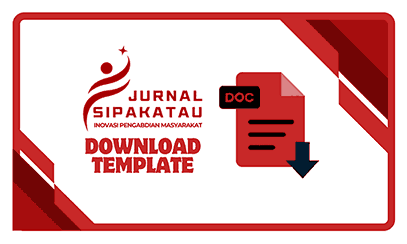Optimizing Duolingo Application Usage to Improve Language Skills Among University Students
DOI:
https://doi.org/10.61220/jsipakatau.v1i2.244Keywords:
Language Skills, Duolingo Application, InnovationAbstract
This community service implementation explores the optimization of Duolingo application usage to enhance language skills among university students. The study investigates the effectiveness of incorporating Duolingo into the language learning curriculum and its impact on students' listening, speaking, reading, and writing abilities. The community service on aims to assess the application's role in fostering a more engaging and interactive language learning experience. The study anticipates identifying the specific language skills that show improvement and gauging the overall satisfaction and motivation of students in utilizing Duolingo. In the implementation of this community service, utilized online methods through Zoom meetings to provide flexibility in terms of space and time, allowing greater accessibility for participating students.The findings aim to provide insights into the potential of leveraging technology, particularly the Duolingo application, as a supplementary tool for language education in a university setting. The conclusion a contribution to the ongoing discourse on innovative language teaching methods and their impact on the academic performance and language proficiency of university students.
References
Ajisoko, P. (2020). The use of duolingo apps to improve english vocabulary learning. International Journal of Emerging Technologies in Learning (Ijet), 15(07), 149. https://doi.org/10.3991/ijet.v15i07.13229
Amin, S. (2021). Gamification of duolingo in rising student’s english language learning motivation. Lingua Scientia Jurnal Bahasa, 13(2), 191-213. https://doi.org/10.21274/ls.2021.13.2.191-213
De Castro, A. P., da Hora Macedo, S., & Pinto Bastos, H. P. (2016). Duolingo: An experience in English teaching. Journal of Educational & Instructional Studies in the World, 6(4).
Erfiani, E. and Miski, C. (2022). The use of duolingo in enhancing students' vocabulary mastery at sma negeri 3 bangko pusako during pandemic covid-19. Indonesian Journal of Integrated English Language Teaching, 8(1), 55. https://doi.org/10.24014/ijielt.v8i1.17972
Fadilah, K. (2022). Students’ perception on the use of duolingo application in learning english during covid-19. Vision, 18(2), 96. https://doi.org/10.30829/vis.v18i2.1445
Faradisa, L. H., Afrila, I. Y., Faroh, I. N., & Choirunnisa, G. (2022). The use of duolingo to assist efl students of prof. kh. saifuddin zuhri state islamic university in learning vocabulary. Conference on English Language Teaching, 2, 14-25. https://doi.org/10.24090/celti.v2.29
Gafni, R., Achituv, D., & Rahmani, G. (2017). Learning foreign languages using mobile applications.. https://doi.org/10.28945/3738
Habibie, A. (2020). Duolingo as an educational language tool to enhance efl students’ motivation in writing. British (Jurnal Bahasa Dan Sastra Inggris), 9(1), 13. https://doi.org/10.31314/british.9.1.13-26.2020
Isbell, D., Rawal, H., Oh, R., & Loewen, S. (2017). Narrative perspectives on self-directed foreign language learning in a computer- and mobile-assisted language learning context. Languages, 2(2), 4. https://doi.org/10.3390/languages2020004
Medvedeva, O. and Rubtsova, A. (2021). Productive method as the basis for soft skills development in engineering foreign language education. Education Sciences, 11(6), 276. https://doi.org/10.3390/educsci11060276
Niah, S. (2019). The utilization of duolingo to improve the speaking and listening skills of junior high school students in pekanbaru.. https://doi.org/10.2991/iccelst-ss-19.2019.12
Risadi, M., Sari, L., & Premananda, N. (2022). Analisa faktor yang berpengaruh pada motivasi belajar bahasa inggris mahasiswa jurusan pariwisata budaya. Pariwisata Budaya Jurnal Ilmiah Agama Dan Budaya, 7(1), 45-50. https://doi.org/10.25078/pariwisata.v7i1.633
Saad, S. M. and Rahim, N. A. A. (2022). Vocabulary acquisition using duolingo in french language learning: a malaysian context. E-Bangi Journal of Social Science and Humanities, 19(2). https://doi.org/10.17576/ebangi.2022.1902.15
Savvani, S. (2019). State-of-the-art duolingo features and applications., 139-148. https://doi.org/10.1007/978-3-030-11935-5_14
Yana, D. (2021). Applying duolingo as english learning media: how do students perceive it?. International Journal of Language Pedagogy, 1(2), 62-66. https://doi.org/10.24036/ijolp.v1i2.11
Yusri, I. K., Robert, G., and Carl, M. (2014). Teachers and mobile learning perception: towards a conceptual model of mobile learning for. Prosedia Social and Behavioral Sciences, 176, 425 – 430.
Downloads
Published
Issue
Section
License
Copyright (c) 2024 Margaret Stevani (Author)

This work is licensed under a Creative Commons Attribution-ShareAlike 4.0 International License.







 Email: sipakatau@lontaradigitech.com
Email: sipakatau@lontaradigitech.com
